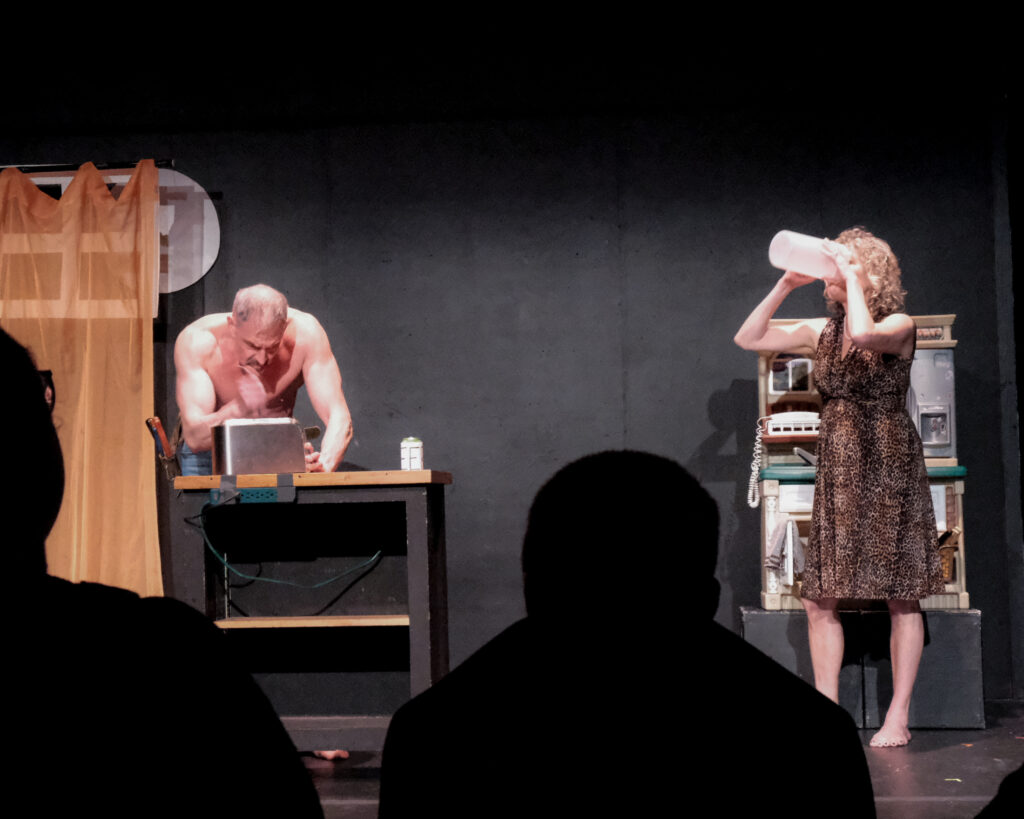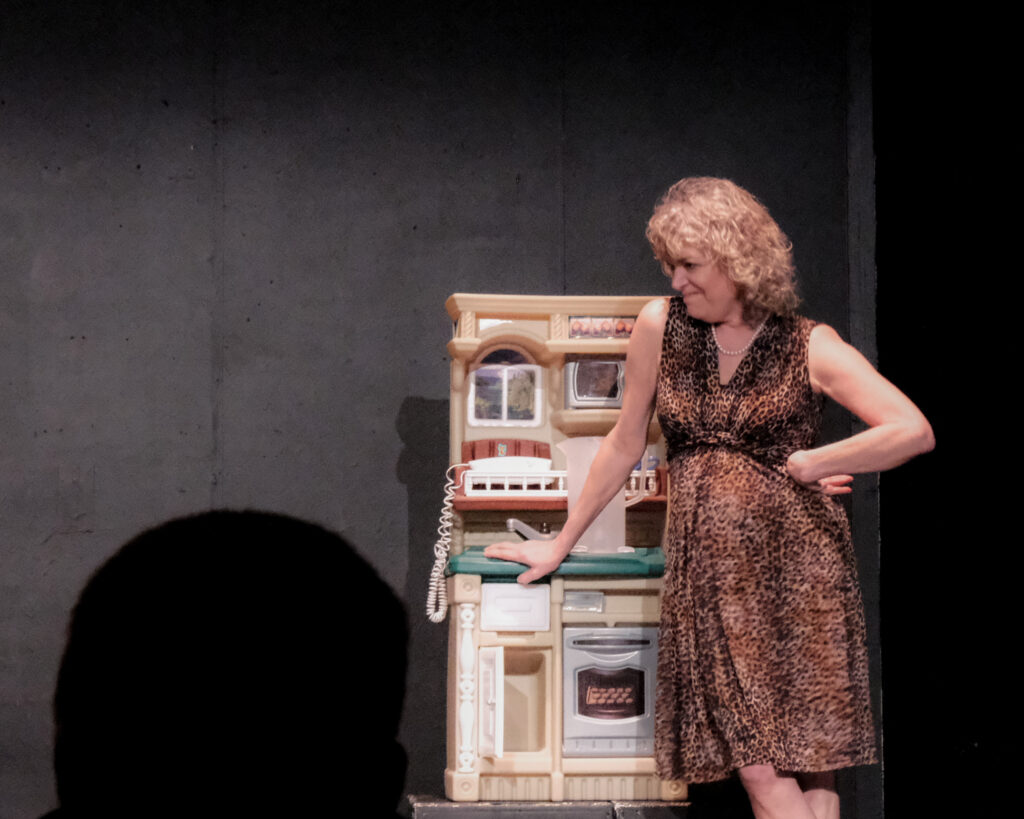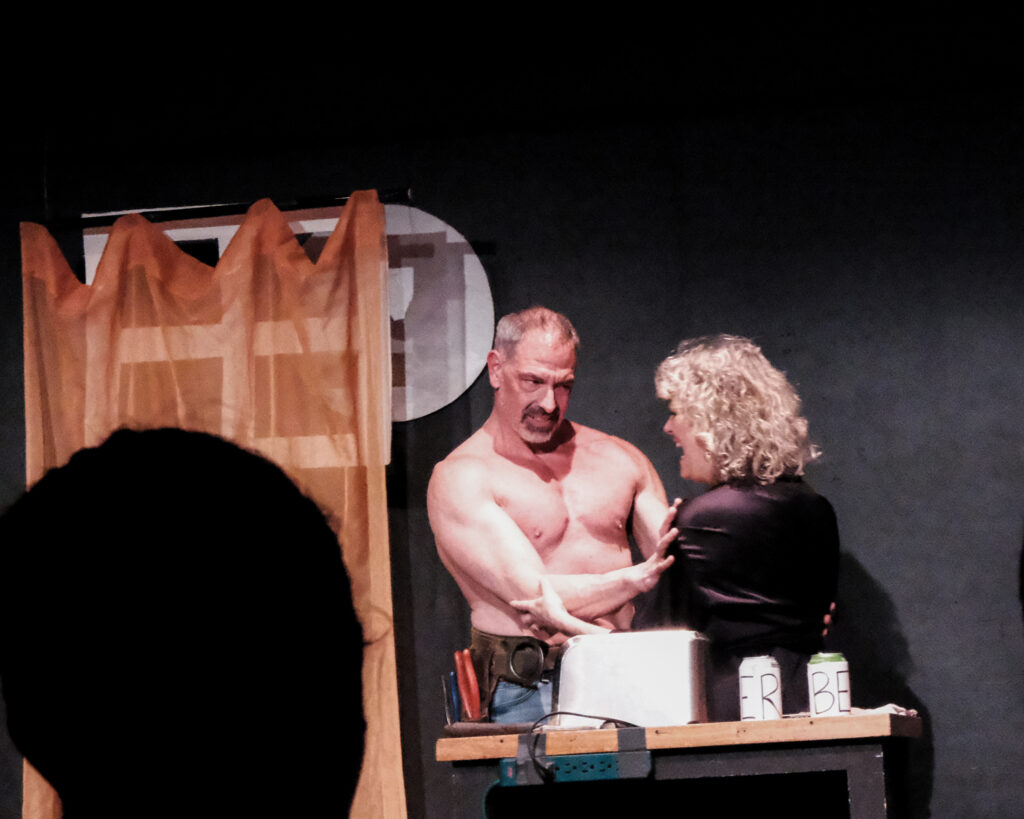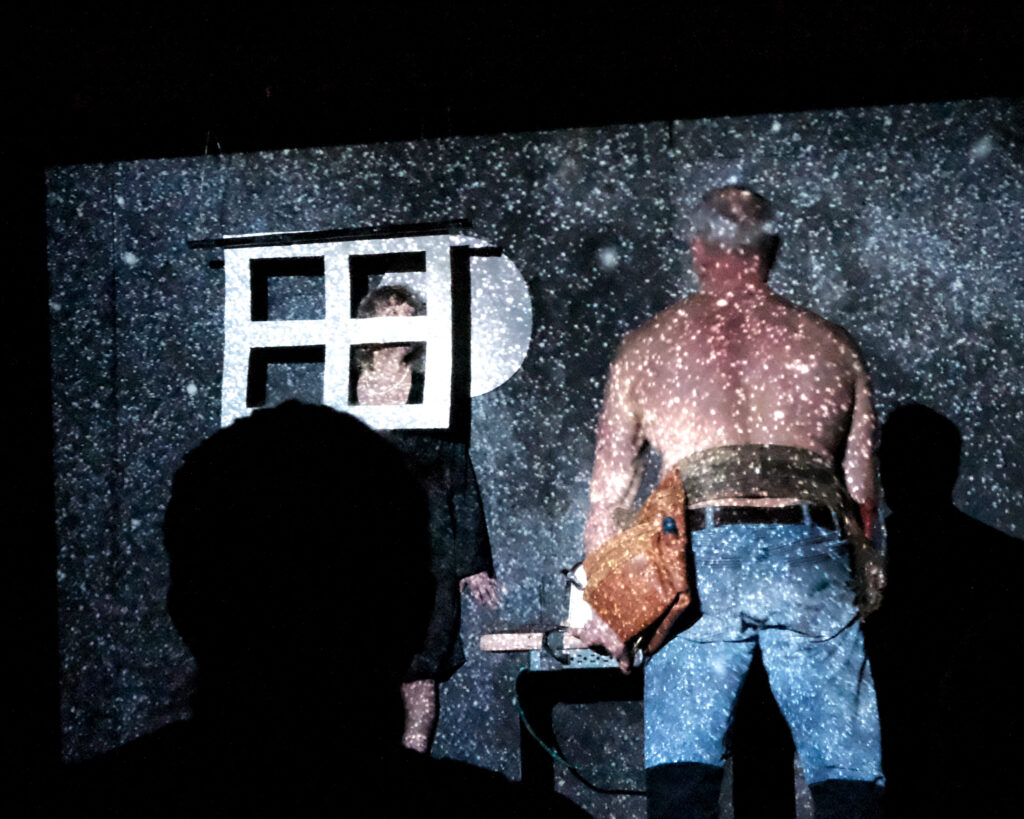Glossophobia: Strong fear of speaking in public, resulting in fear and anxiety.
A quick internet search tells me that while glossophobia may no longer be in the top three fears of most people (it was for years and years), it’s still extremely common. Glossophobia affects as many Americans as four in ten or more, up to 75% of the population.
Are you one of them?
Public speaking doesn’t scare me much, perhaps because of my background as a performer and in the theatre. But singing in public still scares the crap out of me if I’m doing a solo. It’s kind of embarrassing for a voice teacher to admit, but I know I’m not alone in this.
My co-star, Dan, and I had three performances of TOAST at the Chapel Theatre winter play festival after a short two-week whirlwind to prepare. Here are some photos from opening night.




As my husband and I were driving to the theatre for closing night, I found myself saying, “Sometimes I wonder why I do this to myself. It’s our third performance, and I’m still nervous! But then I remember the high after opening night…and there’s just nothing like it.”
I wouldn’t consider myself an adrenaline junkie. I don’t climb mountains, drive crazy or jump out of airplanes. (Not that there’s anything wrong with any of that.) Yet getting up on stage – whether to speak, act, dance or sing – activates the adrenal glands. It’s a physiological response to putting ourselves in what, for most people, is an uncomfortable and anxiety-producing situation. Adrenaline helps us focus…and it also makes our hearts pound and gives us butterflies in our tummies. That’s what was happening to me in the car on the way to the theatre.
Yet, in the end, it’s all worth it!
Why, you may ask?
*Because if you have a message to share, there are people who need to hear it.
*Because when you’re in a theatrical production, you’re creating a community, practically a family. Everyone in the theatre company relies on each other to make those couple of hours special for the audience, and consistent for the actors. Every person has to show up on time, and do exactly what they’ve learned to do during rehearsals, at just the right time. There’s no vision without a director. The actors have to not only learn the lines and blocking, but consistently embody the emotions of their character. If the lights or sound are off even slightly, it impacts the entire show, along with if costume items or props aren’t where they’re supposed to be. A play has a lot of moving parts, a musical even more, always with the intention of giving the audience a spectacular experience. That’s what they paid for.
*Because music, like laughter, is a Universal language. If you love to sing and feel music in your soul, there are people who need to hear you. You are the only person in the entire world who sounds just like you. Your voice is as unique as the irises of your eyes or your fingerprints.
If public speaking or performing is an issue for you, here are a few things you can do.
1. Book a voice lesson and learn some tools. I work all over the world via Zoom and speak some Spanish, si se habla Espanol.
2. Check out this article by Presence Training https://presencetraining.medium.com/tips-and-tricks-for-how-you-can-manage-adrenaline-during-presentations-and-public-speaking-77c1a9717e85 I found online. This is solid advice.
3. Join a local Toastmasters club. Toastmasters is the world’s largest speaking and leadership organization, and there’s probably a club right in your city.
Let me know how your journey unfolds!
Love Your Voice & Voice Your Love,
Laura
